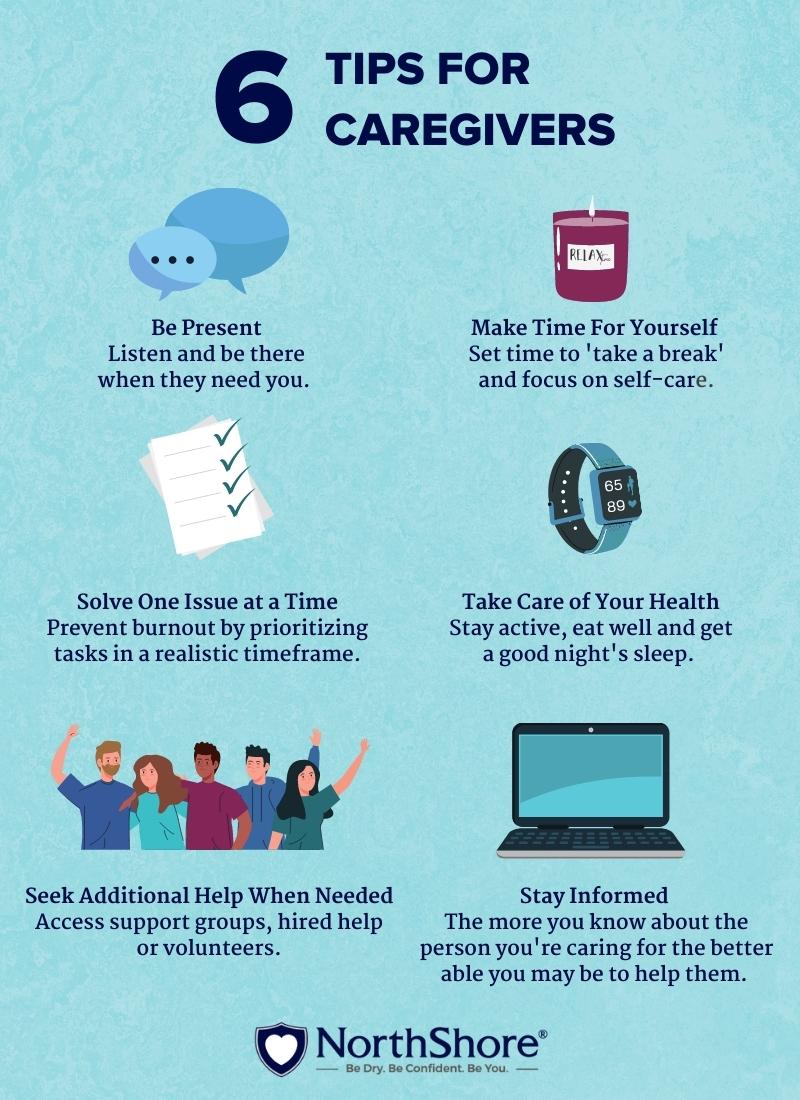Caring for A Loved One with Mental Illness: Tips & Support

Key Takeaways
-
Caregivers supporting loved ones with mental illness often balance emotional needs with practical incontinence management.
-
Reliable protection like MegaMax adult diapers, GoSupreme pull-up underwear, and MagicSorb Air underpads reduces stress for both caregivers and care recipients.
-
Supreme Quilted Wipes and DiscreetShield disposal bags streamline cleanup and preserve dignity in caregiving routines.
In the U.S., nearly half of all adults will experience a mental illness during their lifetime, according to Mental Health First Aid.
"When a friend or family member develops a mental health condition, it's important to know that they're not alone," according to the National Alliance on Mental Illness (NAMI).
About 8.4 million Americans are caregivers to adults with emotional or mental health issues. With only 41 percent of people who have a mental disorder seeking professional help, caregivers play an especially important role in providing much-needed support.
Caregiver Characteristics
A 2016 study by the National Alliance for Caregiving (NAC) found that caregivers are at risk for higher stress and strain due to facing complex, often emotionally challenging situations.
The report also found the following common characteristics among mental health caregivers:
-
About 50% report the person they are caring for is financially dependent on them
-
About half report the person lives with them in their home
-
They have been providing care for a long time, about 9 years, longer than most other caregivers in the U.S. (4 years)
-
They provide about 32 hours of care each week, more than the typical caregiver average of 24 hours
Coping with someone's "bad days" isn't easy, even for the most experienced caregiver. Conditions such as depression, bipolar disorder, obsessive-compulsive disorder (OCD), post-traumatic stress disorder (PTSD) and schizophrenia, among others, make it very difficult to help.
What is important is to be there for those in need, even if it is challenging, and to know support and resources are available.
Tips for Caregivers
It can be difficult to know the right thing to say or do when it comes to helping someone with a mental illness. It may take time, education and awareness to learn how to handle difficult situations and emotions. And, sometimes, seeking professional help may be a good option. Caregivers may find some of the following strategies useful:

Classes
There are many resources and support networks available to caregivers, often free. NAMI offers a variety of courses that are held across the country, including:
-
NAMI Family-to-Family is for families, loved ones and friends. The course is designed to facilitate a better understanding of mental illness and increase coping skills.
-
NAMI Homefront is a class for families, loved ones and friends of military service members and veterans experiencing mental health issues.
Support Groups
There are friendly, welcoming and confidential support groups available for individuals, loved ones and even whole families such as:
-
NAMI Connection Recovery Support Group is offered weekly and monthly to individuals with a mental illness.
-
NAMI Family Support Group is also available on a weekly or monthly basis for family members, loved ones and friends.
Other Helpful Resources
-
Family Crisis Hotline is a 24-hour crisis line for people who are in crisis or contemplating suicide or individuals concerned about a loved one's well-being. It is part of the National Suicide Prevention Lifeline Network.
-
Crisis Intervention Teams are available during crisis situations by calling 911. Always inform the police and operators "this is a mental health crisis" so they are aware and can help appropriately. Services can include transportation to the hospital and welfare checks, among other things.
-
Depression and Bipolar Support Alliance (DBSA) offers in-person and online support for individuals, loved ones and friends. DBSA is a leading national organization offering wellness-oriented support and resources 24/7.
-
Circle of Care: A Guidebook for Mental Health Caregivers is a toolkit that provides resources and information to help friends, families and others who care for an adult with a mental health condition.
Caring for someone with a mental illness can be rewarding but also very challenging. It's important to take care of yourself so you can care for another person. To increase overall well-being, seek out resources, join a support group, take time off, and accept or ask for assistance.
*Information presented is not intended to be a substitute for professional medical advice and should not be relied on for health or personal advice. Always seek the guidance of a medical professional with any questions.
"This post was written by a guest contributor. The opinions and experiences shared are their own and may not reflect the views of NorthShore Care. We love featuring different voices and hope this perspective adds to the conversation in a meaningful way."